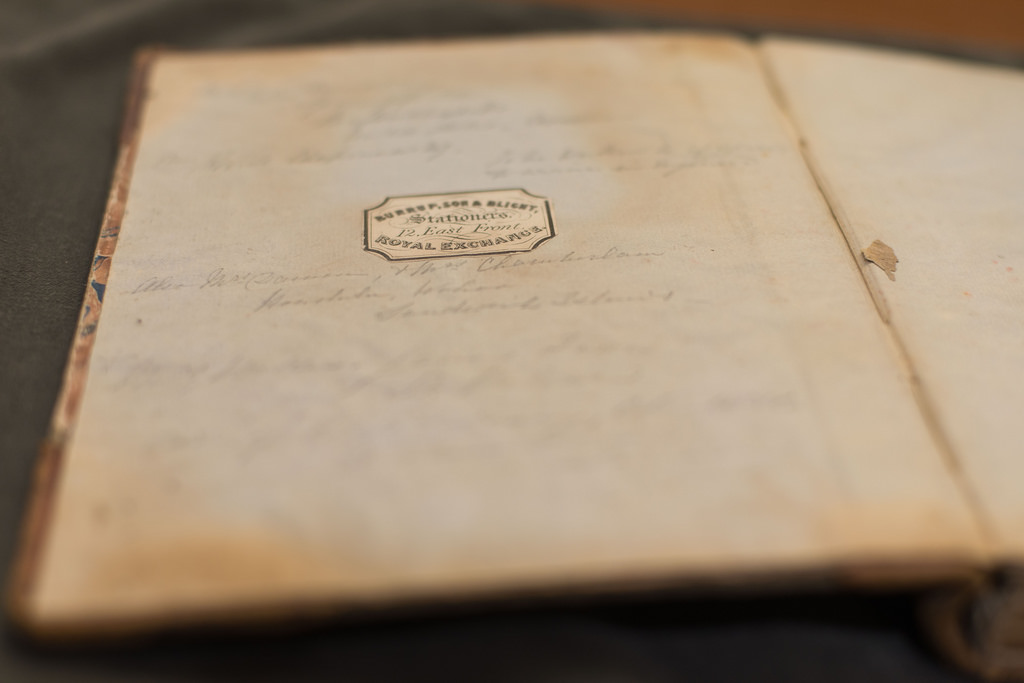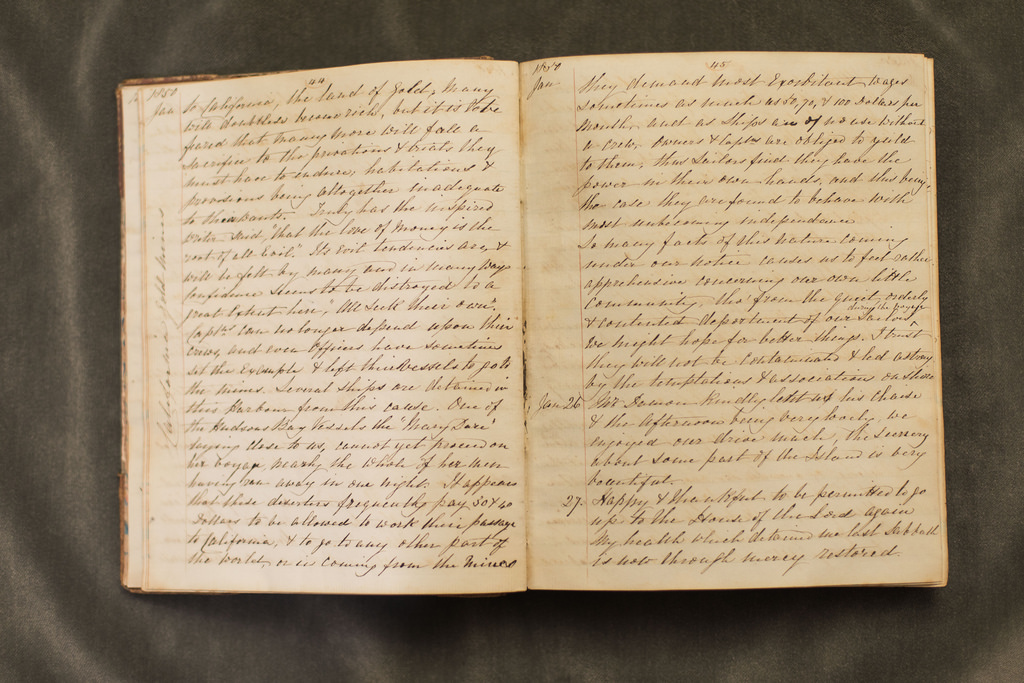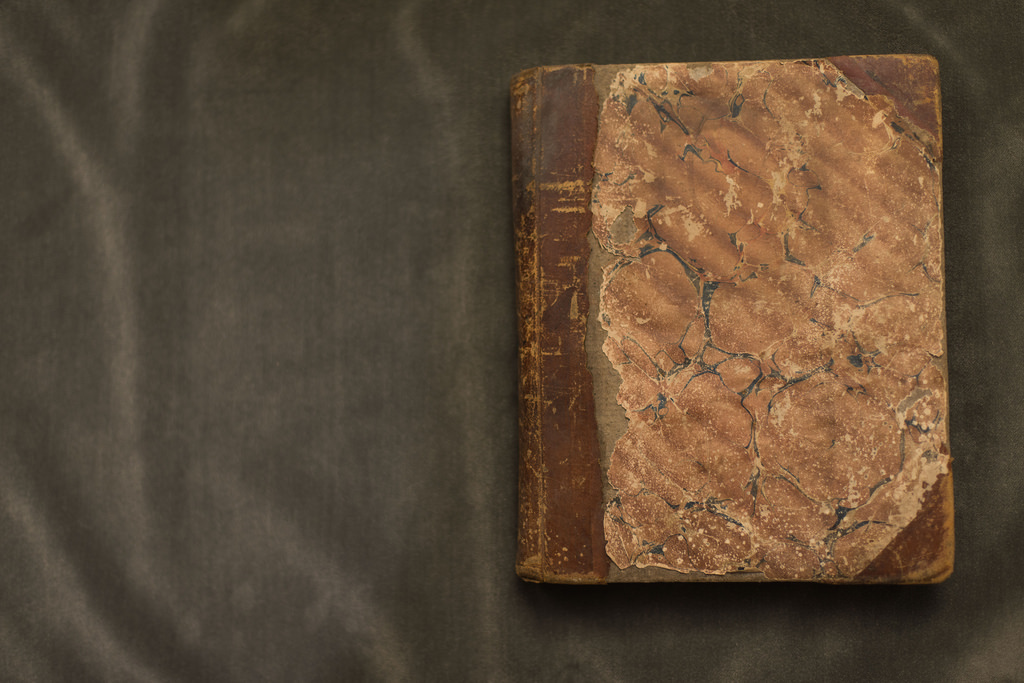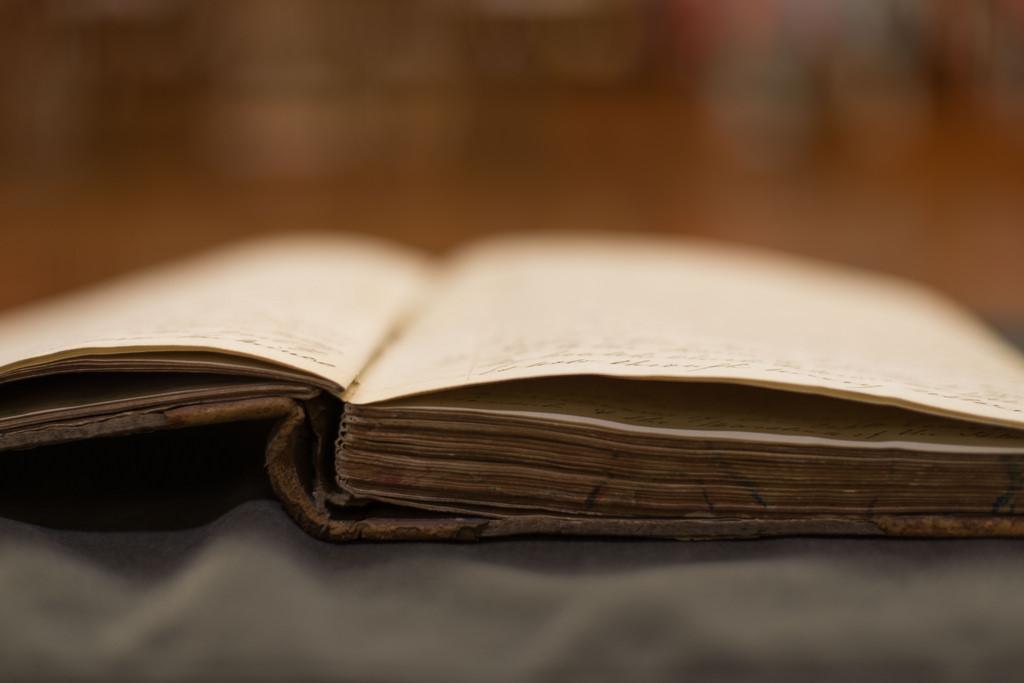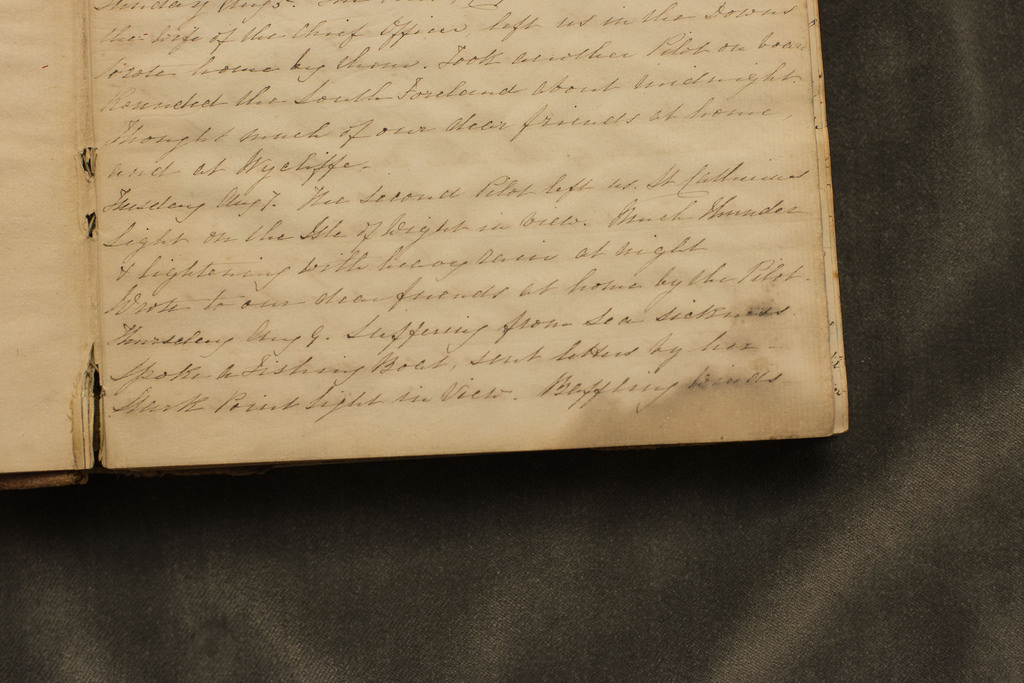Journalling is something of a lost art. How many of us document in writing our daily or weekly experiences, let alone the biggest moments of our lives? The idea of keeping a journal is almost archaic today; we don’t need physical leather-bound pages when we have Facebook to remind us what happened “On This Day” two years ago. Social media has made the simple act of remembering less and less important—there are even apps with the sole purpose of disseminating content that disappears 24 hours later, and thanks to Mark Zuckerberg, birthdays don’t have to be stored in our memories anymore.
We’ve lost something valuable: the simple, pure expression of time and place. It’s written terroir, the day-to-day reflection of what’s right now—or, in the case of Susannah Weynton’s journal, what came before us.
The wife of a Hudson’s Bay Company supply ship master, Weynton travelled by boat from London to the Pacific Northwest, including Vancouver Island and Fort Langley, in 1850. And what was standard practise to her—writing down her thoughts and experiences—has proved truly special for us, offering a window into the past. The University of British Columbia Library’s Rare Books and Special Collections has acquired Weynton’s journal for its archive, bringing what is considered to be the earliest woman-authored account of B.C. right into the community.
Here, reprinted with the university’s permission, are transcribed entries from the journal. Together, they offer unique insight into the history of our province.
March 9, 1850
The snowy mountains of Vancouver’s Isle in sight this morning. We would give thanks to Him who holds waters in the hollow of His hand that we have been led thus far in safety.
March 16, 1850
Passed through the straights with a fair wind in the night and reached Rocky point by daylight. The captain watching on deck all night, I sat up to keep a cheerful fire and hot coffee for my husband, the officers and do not feel at all sleepy or tired today. A lovely morning and a dead calm until about 3 o’clock when a strong breeze carried us to the entrance of the harbour where we anchored about 4 o’clock. My dear Husband dressed and went to shore with the mail.
March 22, 1850
Accompanied my dear Husband on shore and enjoyed a ramble with him over wild and beautiful country. The scenery is very varying and picturesque. At one turn will be seen the little Bay surrounded by trees and Hills, with the dear old Cowlitz and other ships nesting peacefully, in their long desired and quiet haven. At another opening we have a fine view of the straights with the Olympia range of mountains beyond, their snowy peaks reaching into the clouds, and when the sun shines upon them presenting a beautiful and magnificent appearance. Oak and fir trees surround us in abundance, the soil is peculiarily fine without cultivation fruits and plants which in England we consider rare and choice. During our walk we called at the Dairy, saw some fine cows and enjoyed a draught of new milk. In exploring the uncultivated country, we seem to have our English feelings at home and climb fences, wade through difficult passes and jump across streams and inlets without hesitation. After spending a happy afternoon with my dear companion and Husband, we called at the Fort and spent the remainder of the day Governor Douglas’ family. Ms. Jane Douglas’s birthday.
May 2, 1850
Arrived at Fort Rupert Beaver Harbour after a very pleasant journey round the back of Vancouver Island; with the exception of one night, when a sudden gale of wind obliged us to pull back a few miles to find a harbor of refuge, we had been passing through many miles of narrow straits bordered with almost perpendicular mountains 7 or 800 feet in height, the water bottomless. It caused some uneasiness for an hour or two when wind and rain and intense darkness came on, but we had a new song of praise ns gratitude in being led to a safe anchorage with no other accident than the breaking away of one of the tow ropes…
May 14, 1850
On our way to Fort Langley, Fraser River, much interested and edified reading Mrs. Follen’s “Sketches of Married Life.” Had heard this book spoken highly of by dear Maria when in England and often wished to meet with it. Rather singular that in this far off land, at the northern extremity of Vancouvers Island, it should fall into our hands…

